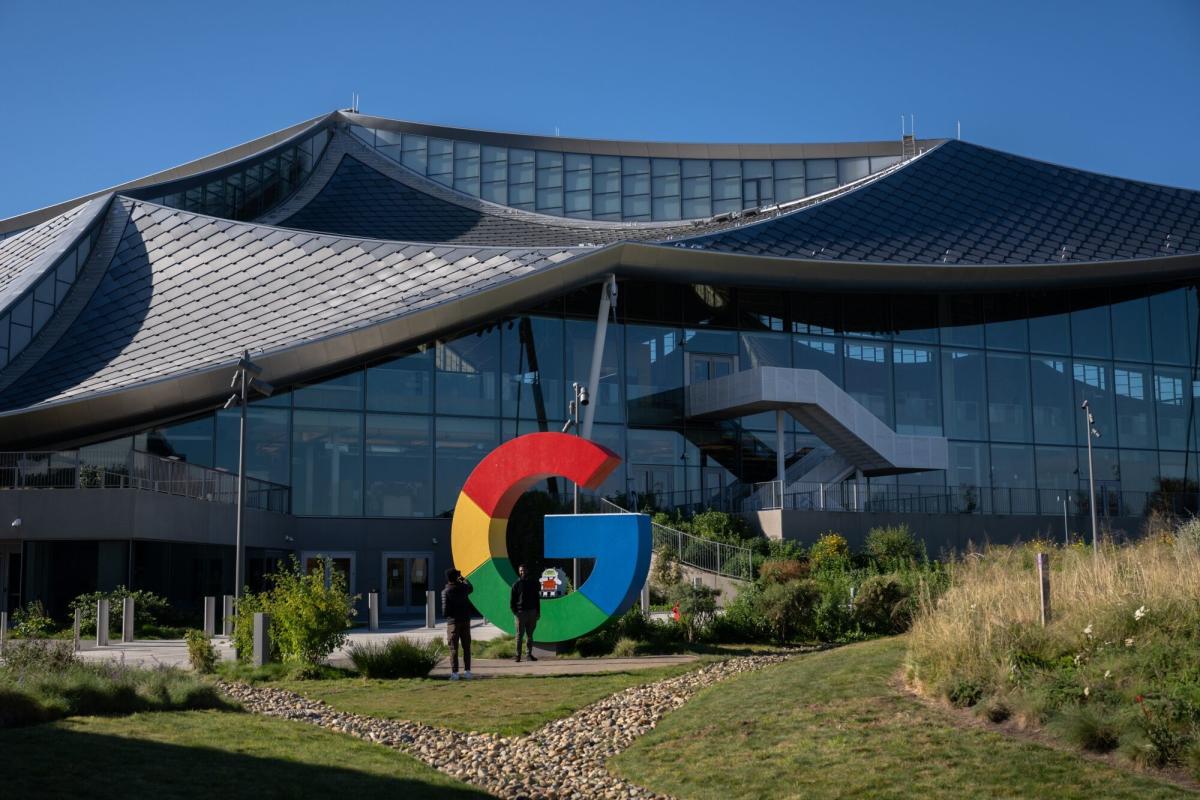(Bloomberg) — The US Justice Department told a federal judge it’s considering recommending that Google be forced to sell off parts of its operations to alleviate the harm caused by its monopolization of the online search market, in what would be a historic antitrust breakup.
Most Read from Bloomberg
In a court filing Tuesday, antitrust enforcers said Judge Amit Mehta could also order the Alphabet Inc. unit to provide access to the underlying data it uses to build its search results and artificial intelligence products.
The Justice Department “is considering behavioral and structural remedies that would prevent Google from using products such as Chrome, Play, and Android to advantage Google search and Google search-related products and features — including emerging search access points and features, such as artificial intelligence — over rivals or new entrants,” the agency said in the filing.
The 32-page document lays out a framework of potential options for the judge to consider as the case moves to the remedy phase. The agency said it will provide a fuller proposal on remedies next month. Futures on the Nasdaq 100 Index, which counts Alphabet among its largest constituents, extended declines to about 0.3% after the filing.
The effort is the most significant move to rein in a major tech company over illegal monopolization since Washington unsuccessfully sought to break up Microsoft Corp. two decades ago.
Antitrust enforcers said Google gained scale and data benefits from its illegal distribution agreements with other tech companies that made its search engine the default option on smartphones and web browsers. Google’s Android business encompasses the operating system used on smartphones and devices as well as apps.
The Justice Department also said it may seek a requirement that Google allow websites more ability to opt out of its artificial intelligence products. The agency said it’s considering proposals related to Google’s dominance over search text ads, such as requirements that the company provide more information and control to advertisers over where their ads appear.
The agency may also request that Google be restricted from investing in search competitors or potential rivals.
Google criticized the Justice Department’s filing as “radical,” saying it would have “significant unintended consequences for consumers, businesses, and American competitiveness.”
“We believe that today’s blueprint goes well beyond the legal scope of the Court’s decision about Search distribution contracts,” Lee-Anne Mulholland, Google’s vice president of regulatory affairs, wrote in a blog post.
Antitrust pressure from multiple cases is building against Google. Mehta, who ruled this summer that Google broke antitrust laws in both online search and search text ads markets, plans to hold a trial on the proposed remedy next spring and issue a decision by August 2025. Google has already said it plans to appeal Mehta’s decision, but must wait until he finalizes a remedy before doing so.
“We believe a breakup of Google is unlikely at this point despite the antitrust swirls,” said Daniel Ives, managing director and senior equity analyst at Wedbush Securities. “Google will battle this in the courts for years.”
A group of states that sued Google over its search monopoly separately from the Justice Department said they may seek to have the tech giant pay for a public education campaign about how to switch search engines.
On Monday, a different federal judge ordered Google to open up its app store for the next three years to resolve a separate antitrust case brought by Epic Games Inc. related to its dominance of app distribution on Android smartphones. The company also plans to appeal that decision.
Last month, the Justice Department and Google faced off in a third antitrust suit focused on the company’s dominance over the technology used to buy and sell online display ads. Closing arguments in that lawsuit are scheduled for late November. Antitrust enforcers have said they plan to seek to force Google to sell off parts of its ad tech business if the court finds the company monopolized that market.
–With assistance from Julia Love.
(Updates with Google comment from ninth paragraph.)
Most Read from Bloomberg Businessweek
©2024 Bloomberg L.P.

